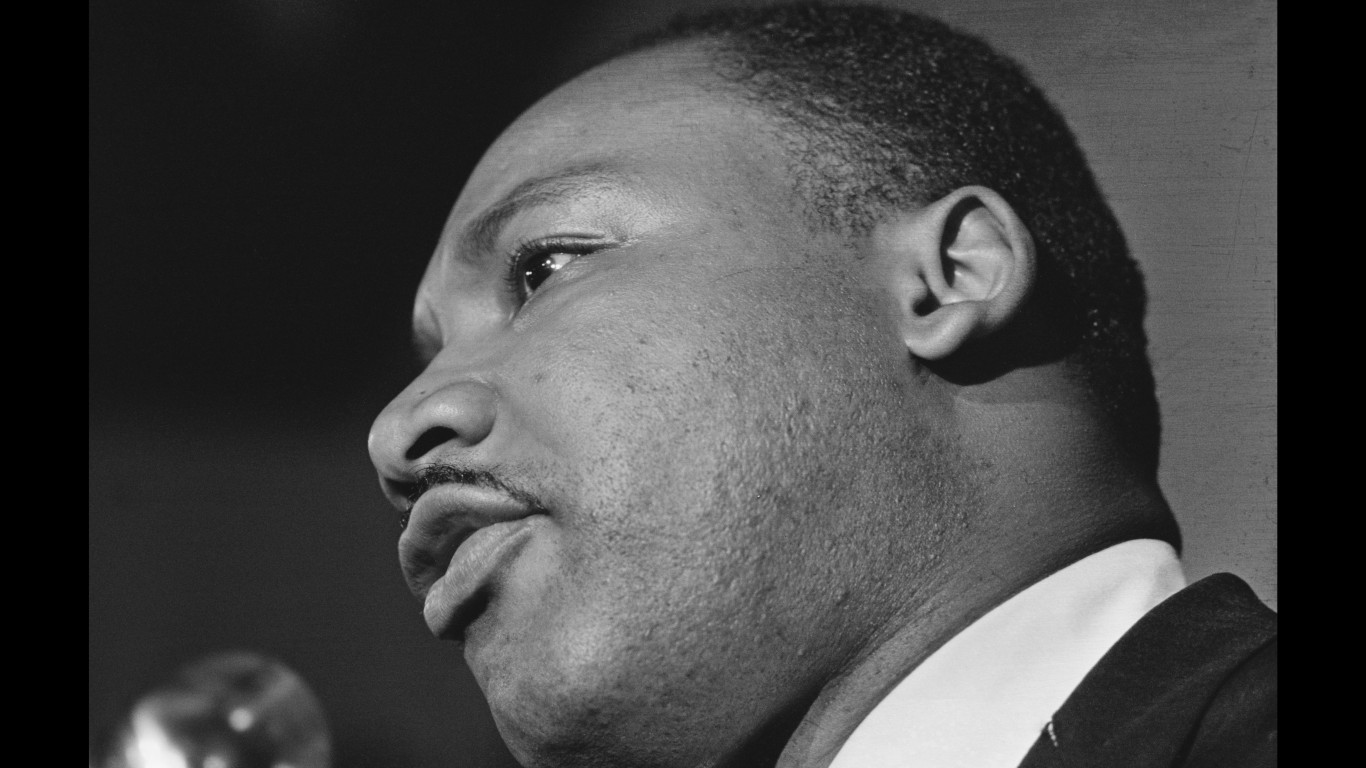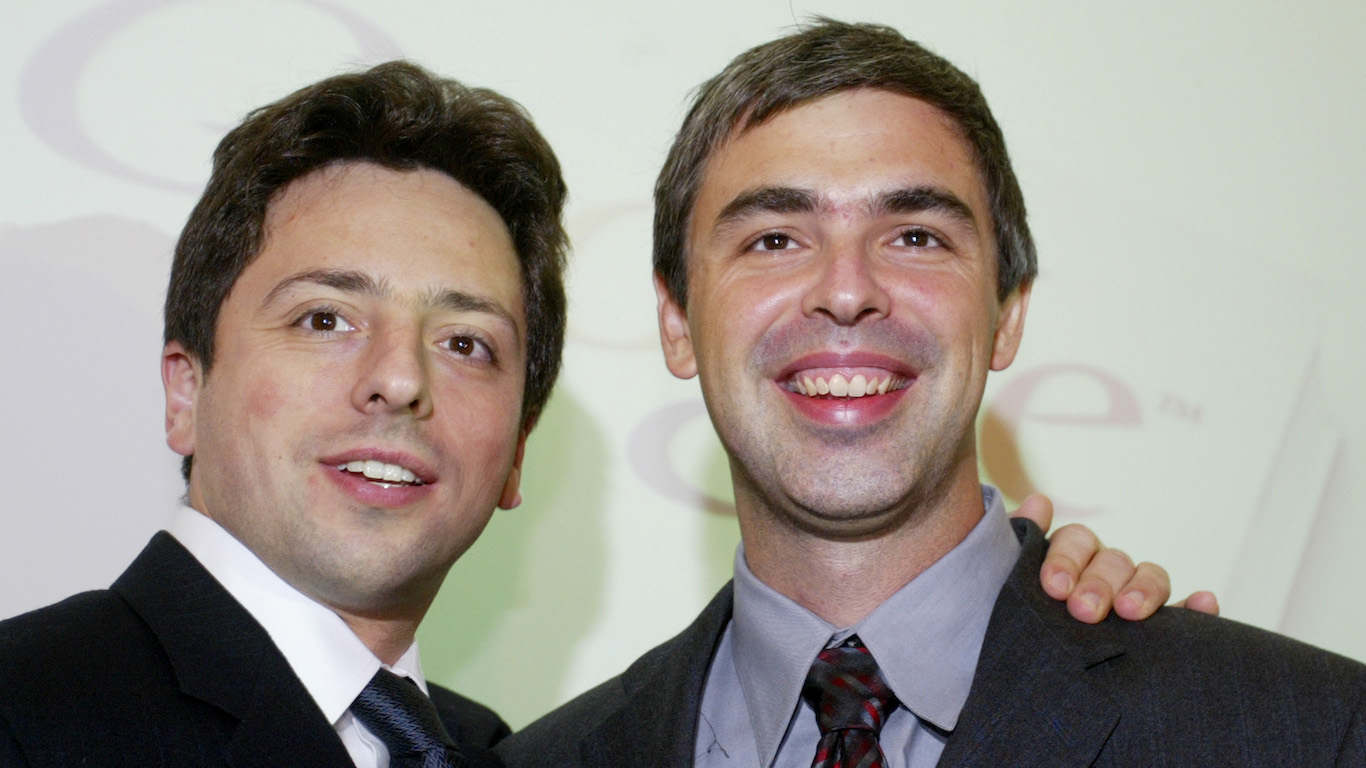
America is often referred to as The Land of Opportunity, offering people of all backgrounds and levels of education a chance to succeed and build a fortune through hard work and innovation.
Throughout U.S. history, people have become titans of industry and gained recognition through their accomplishments and industry-disrupting ideas. These figures often rose to prominence by undercutting and outmaneuvering the competition to dominate their industry. Names like Rockefeller, Carnegie, and Astor are still prominently displayed on street addresses, performance centers, and municipal buildings because of the indelible impact those people have had on American history and the economy.
Reviewing the industries that these business magnates dominated to obtain their wealth can be an interesting way to map the trajectory of the U.S. economy over time.
Many of the richest Americans of all time made their fortunes at a time when the U.S. was expanding rapidly and building up its infrastructure. During the second half of the 19th century John D. Rockefeller’s oil and Andrew Carnegie’s steel fed America’s voracious appetite to expand. But many Americans also resented the success of the top 1%, branding them as “robber barons” and arguing their fortunes were made on the backs of their employees.
Today a new class of mega-billionaire has made its money through the internet and related technologies. Jeff Bezos is worth more than $150 billion thanks to his e-commerce giant, Amazon. Mark Zuckerberg — one of the 30 richest millennial tech entrepreneurs — created Facebook and became a self-made billionaire at age 23. He was at the time the youngest person to ever do so.
24/7 Wall St. reviewed lists of the wealthiest people in American history, both those living and deceased, to determine the richest Americans of all time. We converted the estimated net worth of those who have passed away into current U.S. dollars. Real-time estimates came from Forbes.
Click here to see the 30 richest Americans of all time

30. Jim Walton (b.1948)
> 2018 estimated net worth: $46.6 billion
> Source of wealth: Walmart
> Birthplace: Newport, Arkansas
Jim Walton is the youngest son of Sam Walton, Walmart’s founder. Jim no longer sits on the company’s board, instead focusing on Arvest Bank, which is owned primarily by the Walton family.
[in-text-ad]
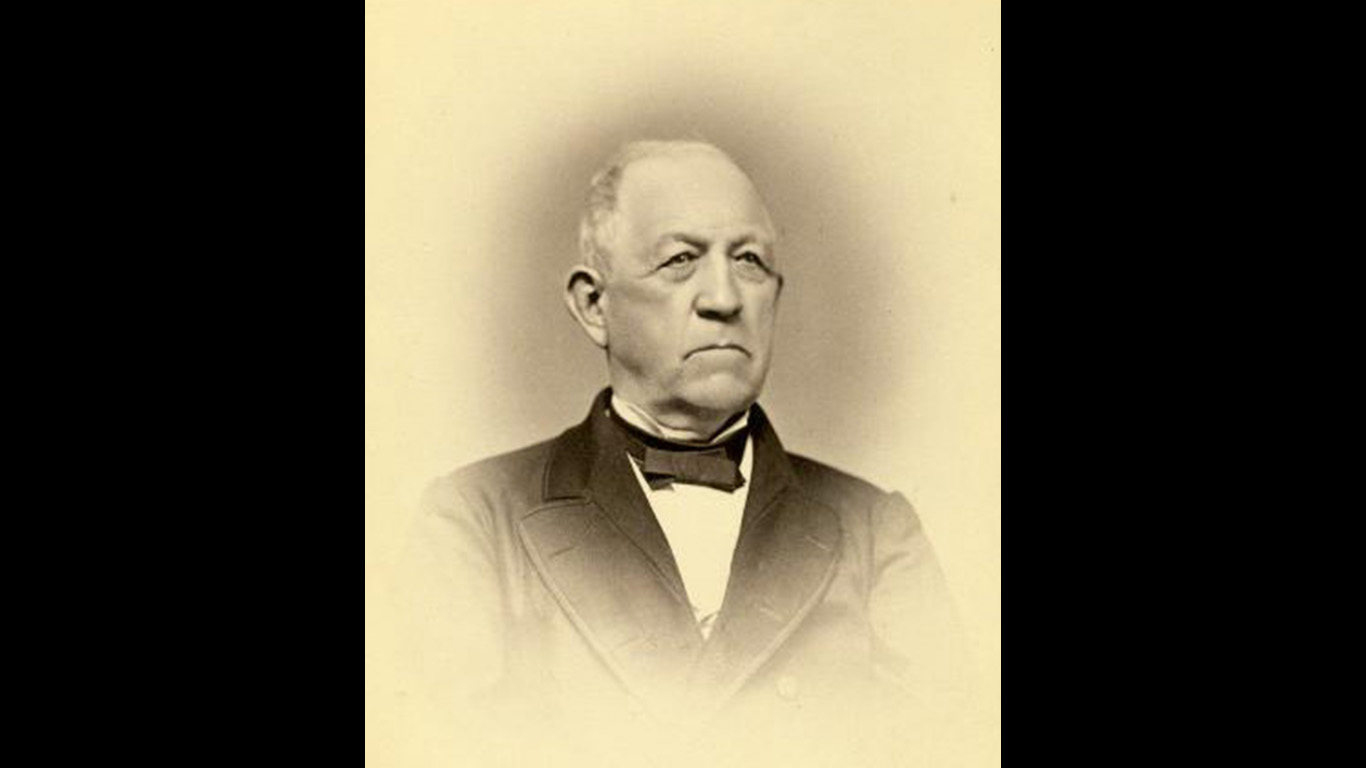
29. John Insley Blair (1802-1899)
> 2018 estimated net worth: $47.7 billion
> Source of wealth: Railroads
> Birthplace: Belvidere, New Jersey
Before the advent of cars and airplanes, railroads were the dominant way to move goods and people across the country. John Insley Blair was said to have been the largest owner of railroad property in the world at one point and he served as president of 16 railroad companies at the same time.

28. Cyrus H.K. Curtis (1850-1933)
> 2018 estimated net worth: $48.3 billion
> Source of wealth: Publishing
> Birthplace: Portland, Maine
Recognized as a member of the Advertising Hall of Fame, Cyrus H.K. Curtis is considered the “founder of the modern magazine.” Curtis launched magazines such as Ladies’ Home Journal and later bought other publications including The Evening Post and The Philadelphia Inquirer.
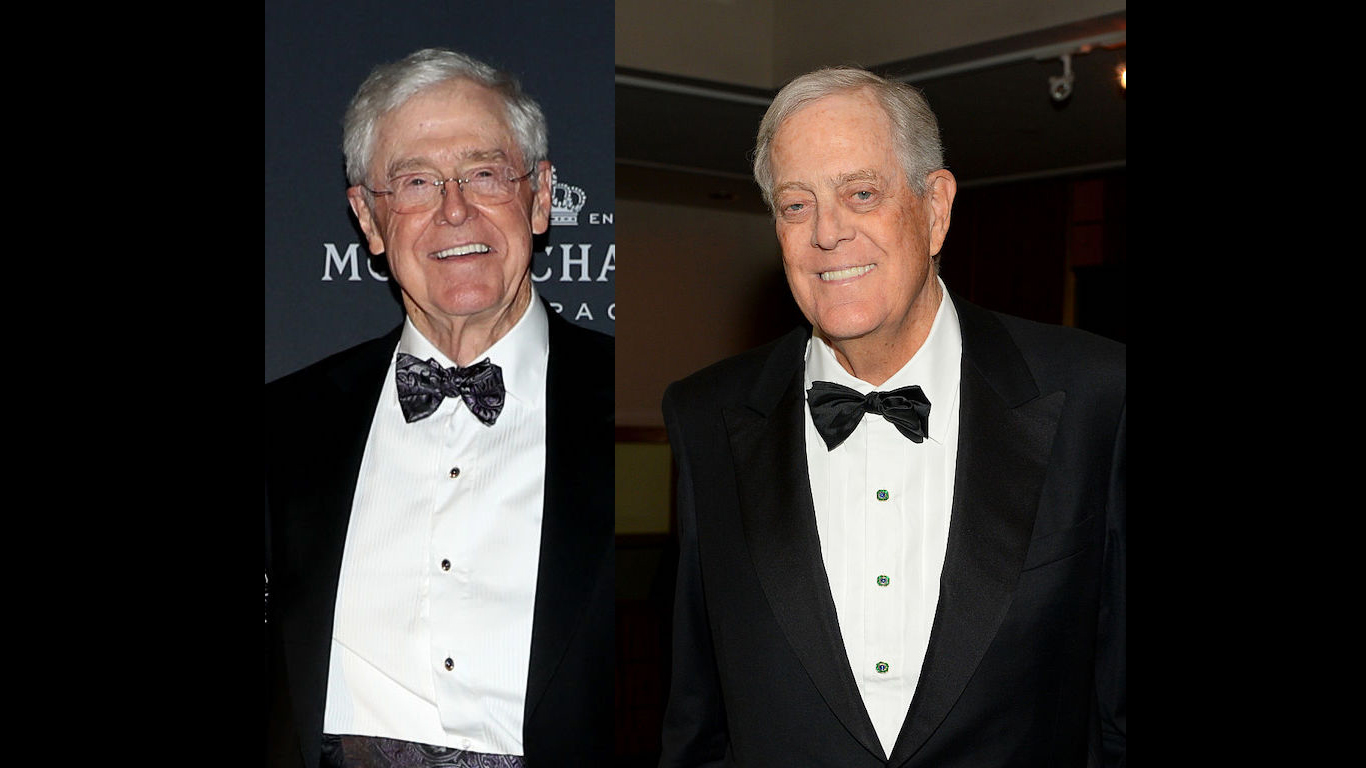
27. Charles & David Koch (b.1935, b.1940)
> 2018 estimated net worth: $52.0 billion
> Source of wealth: Koch Industries, multiple industries
> Birthplace: Wichita, Kansas
Charles Koch and his brother David own more than 80% of Koch Industries, the conglomerate started by their father, Fred. Koch Industries produces a diverse array of products, including chemicals and consumer goods.
[in-text-ad-2]
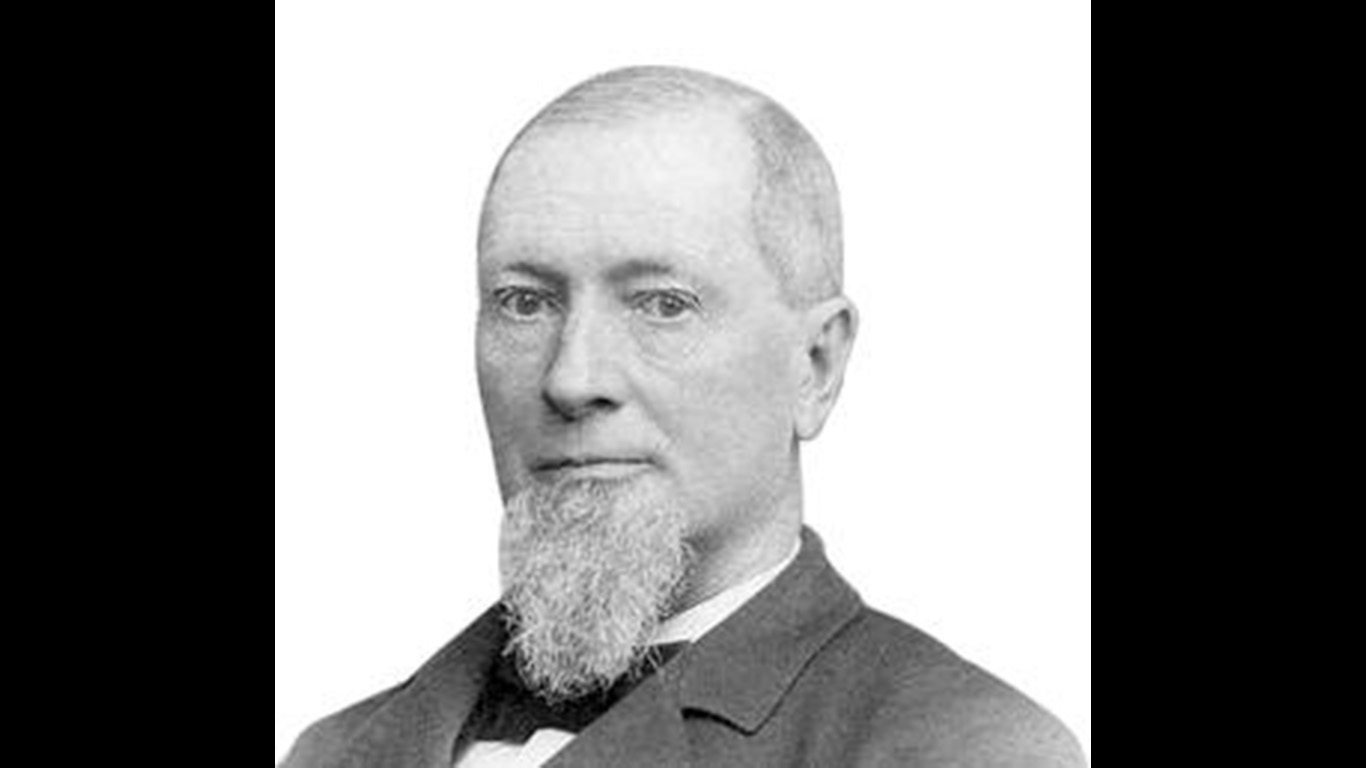
26. William Weightman (1813-1904)
> 2018 estimated net worth: $52.7 billion
> Source of wealth: Pharmaceuticals
> Birthplace: Waltham, England
William Weightman moved to the U.S. at the request of his uncle, a chemist. In the country, Weightman launched a company that developed a new synthetic treatment for malaria He parlayed his windfall into a vast portfolio of real estate holdings in Philadelphia.

25. James G. Fair (1831-1894)
> 2018 estimated net worth: $53.8 billion
> Source of wealth: Mining industry
> Birthplace: Clogher, Northern Ireland
James G. Fair moved from Northern Ireland to the U.S. as a boy, and traveled to California during the 1849 gold rush to seek his fortune. Fair proved himself adept at understanding the state’s geologic formations and over time secured a leadership position at the Hale and Norcross mining company. He later helped the mining company find the Big Bonanza, the discovery of which in 1873 represented the largest cache of gold and silver in U.S. history.
[in-text-ad]

24. Sergey Brin (b.1973)
> 2018 estimated net worth: $54.0 billion
> Source of wealth: Google
> Birthplace: Moscow, Russia
Born in Moscow in 1973, Sergey Brin and his family immigrated to the States to escape the Soviet era discrimination against Jewish people.. He and Larry Page, a Stanford computer science student, created Google as a project. Their mission was to create an internet search engine that would rank the results according to what was most popular. Brin has been a billionaire since 2004, when Google went public.
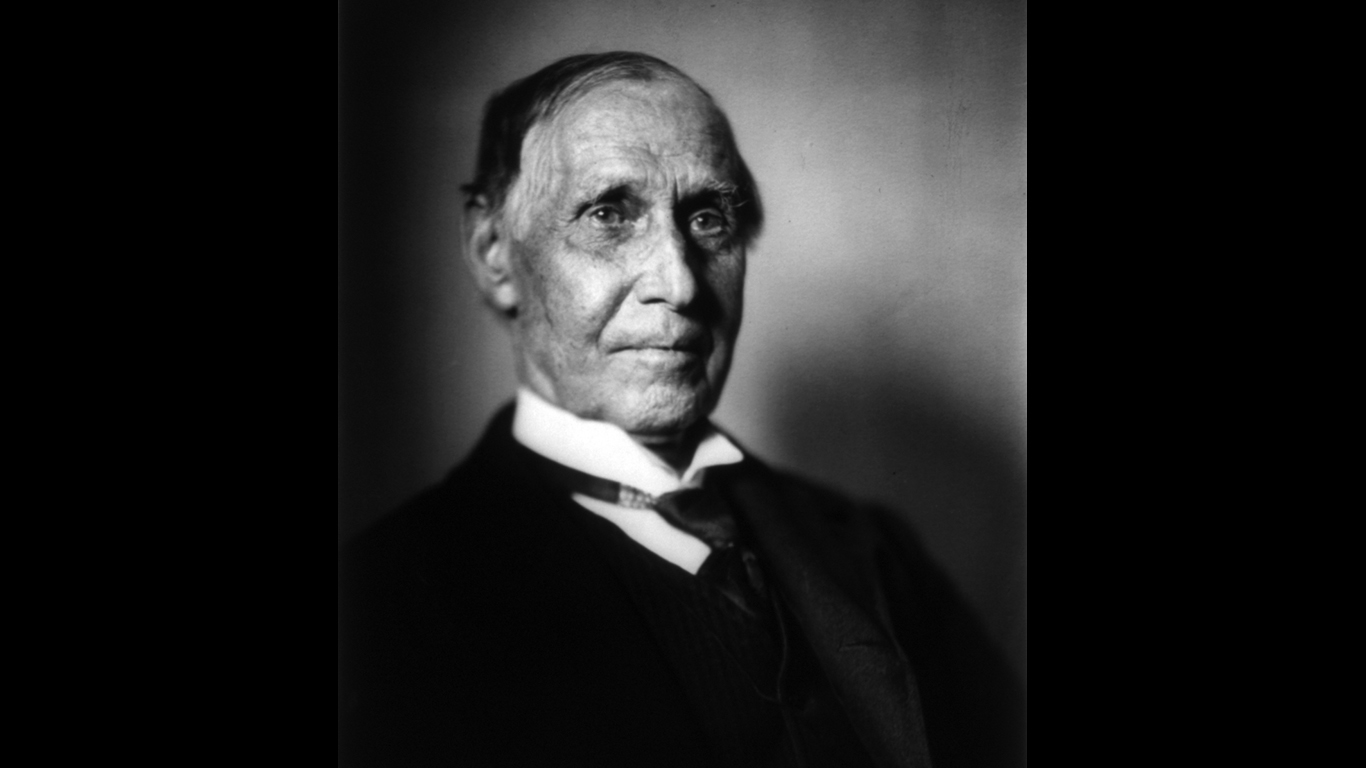
23. Russell Sage (1816-1906)
> 2018 estimated net worth: $54.5 billion
> Source of wealth: Stock trading
> Birthplace: Verona, New York
Russell Sage was born into a poor family, but he used his financial skills to build a fortune. He initially owned a shop, then used the profits to try his hand at other ventures. He later moved to New York City, where he became a stock trader. Some of his innovative trading methods — including using puts and calls — are still employed on Wall Street to this day.
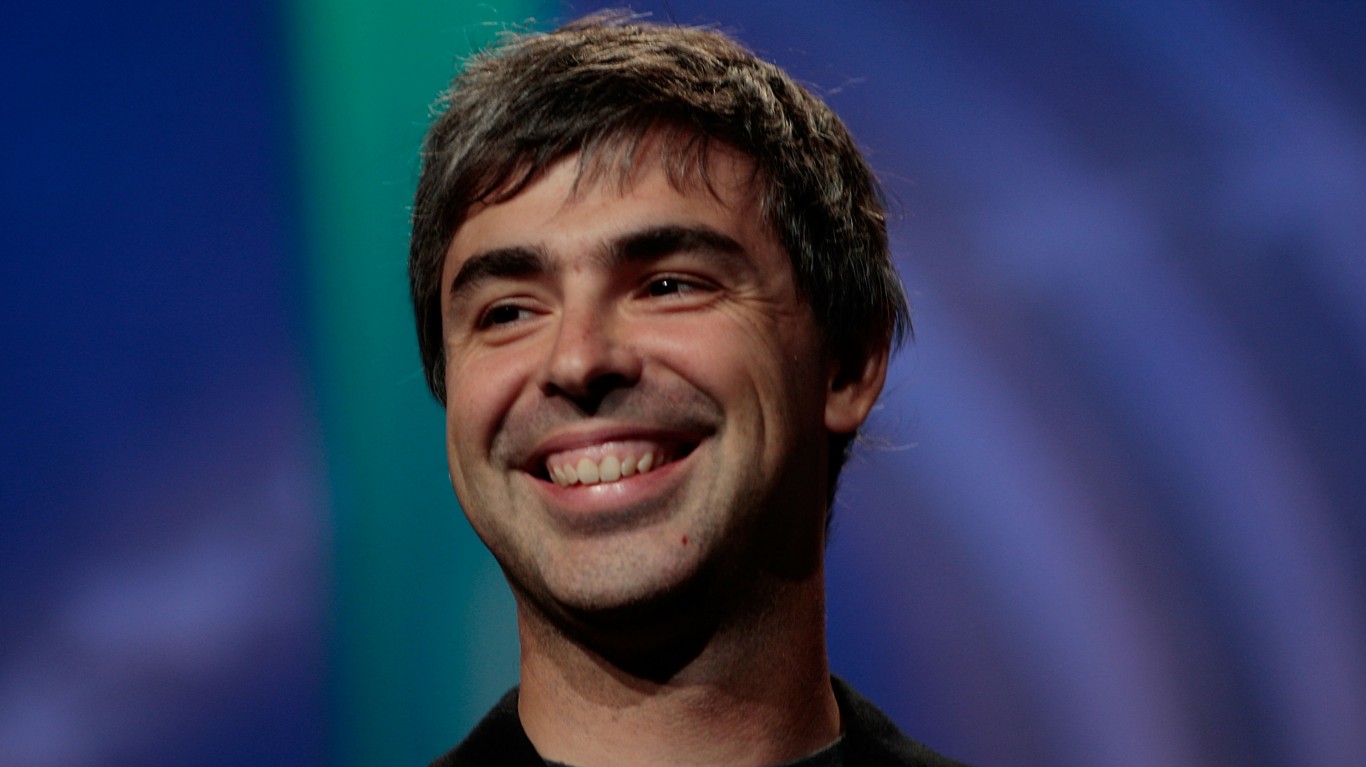
22. Larry Page (b.1973)
> 2018 estimated net worth: $55.2 billion
> Source of wealth: Google
> Birthplace: East Lansing, Michigan
Larry Page is the son of a computer scientist and a computer programming teacher. He and Sergey Brin invented the search engine Google while studying at Stanford University.
[in-text-ad-2]
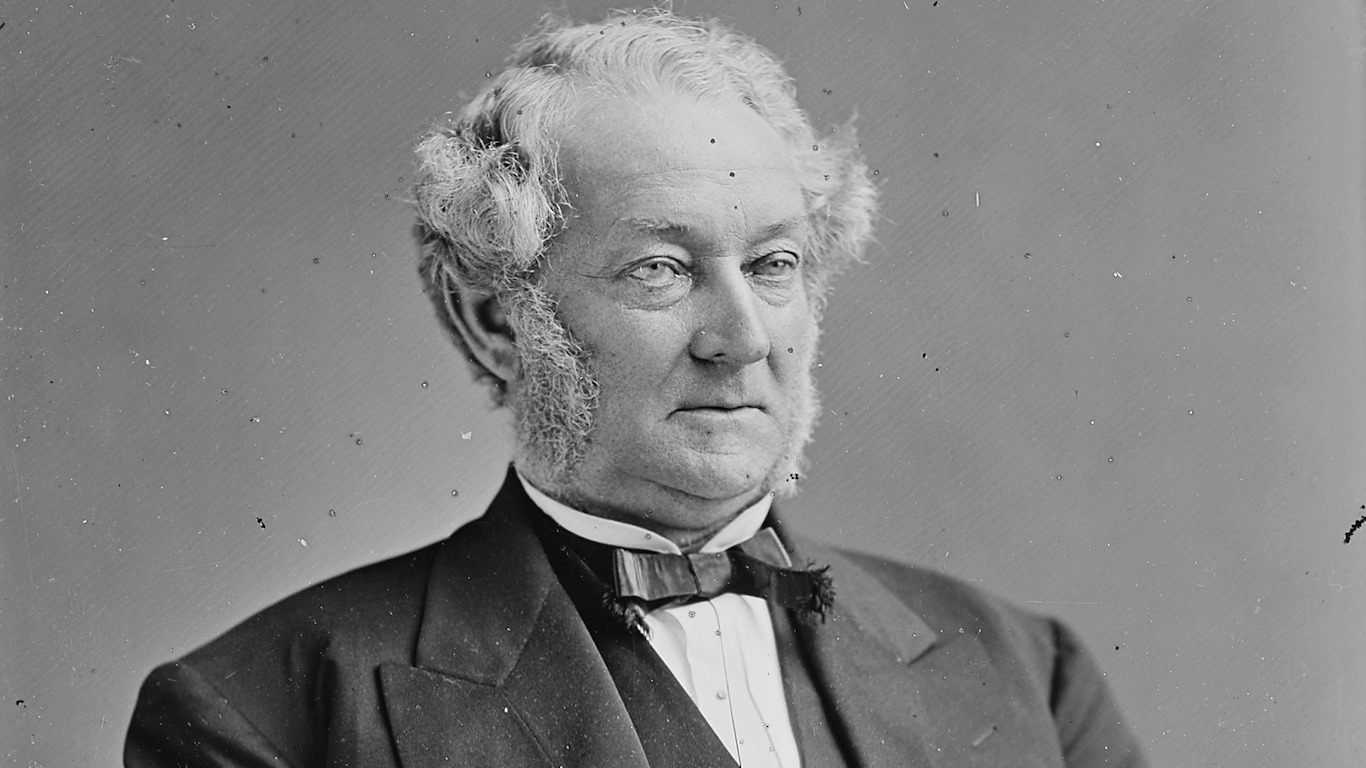
21. Moses Taylor (1806-1882)
> 2018 estimated net worth: $55.4 billion
> Source of wealth: Citibank
> Birthplace: N/A
Moses Taylor’s father was a close associate of John Jacob Astor, who had bought City Bank of New York, now Citibank, after the panic of 1837 and put the younger Taylor in charge. After Moses achieved success, the Taylor family donated some of his fortune to open Moses Taylor Hospital in Scranton, Pennsylvania. The hospital was founded to treat the families of workers for DL&W Railroad and Lackawanna Iron and Coal Company, for which Moses Taylor had served as a director.

20. Michael Bloomberg (b.1942)
> 2018 estimated net worth: $59.4 billion
> Source of wealth: Bloomberg L.P.
> Birthplace: Boston, Massachusetts
Michael Bloomberg worked on Wall Street at the beginning of his career but eventually created his own information technology company to serve the financial industry. His company quickly became successful thanks to the Bloomberg Terminal, which in 1981 began offering traders a computerized way to collect, analyze, and share data. Bloomberg eventually served as a three-term mayor of New York City.
[in-text-ad]
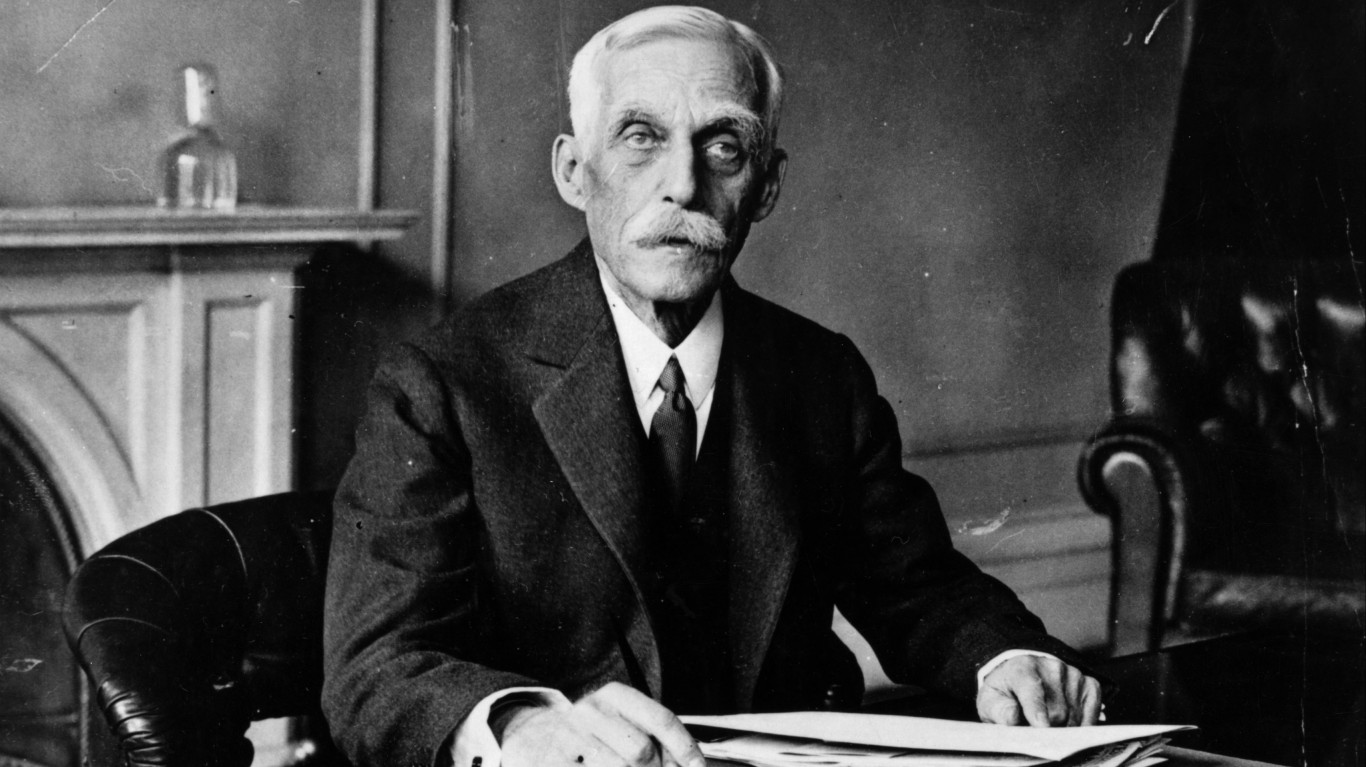
19. Andrew Mellon (1855-1937)
> 2018 estimated net worth: $64.3 billion
> Source of wealth: Banking
> Birthplace: Pittsburgh, Pennsylvania
The son of wealthy banker Thomas Mellon, Andrew Mellon eventually took over his bank. The younger Mellon proved he had a keen eye for recognizing emerging technologies. He helped found the Aluminum Company of America and the Gulf Oil Corporation. He later served as a U.S. secretary of the Treasury for more than a decade.

18. Larry Ellison (b.1944)
> 2018 estimated net worth: $65.3 billion
> Source of wealth: Oracle
> Birthplace: New York City, New York
Larry Ellison founded Oracle software company in 1977. The company got its big break in 1981 when IBM opted to use Oracle’s database management system. Oracle is now one of the largest software company in the world.

17. Mark Zuckerberg (b.1984)
> 2018 estimated net worth: $66.0 billion
> Source of wealth: Facebook
> Birthplace: White Plains, New York
Mark Zuckerberg’s rise to prominence is well known. While at Harvard, he created the social media juggernaut Facebook. Despite the company’s recent problems with the security of its data, Zuckerberg is the nation’s wealthiest person under 40.
[in-text-ad-2]
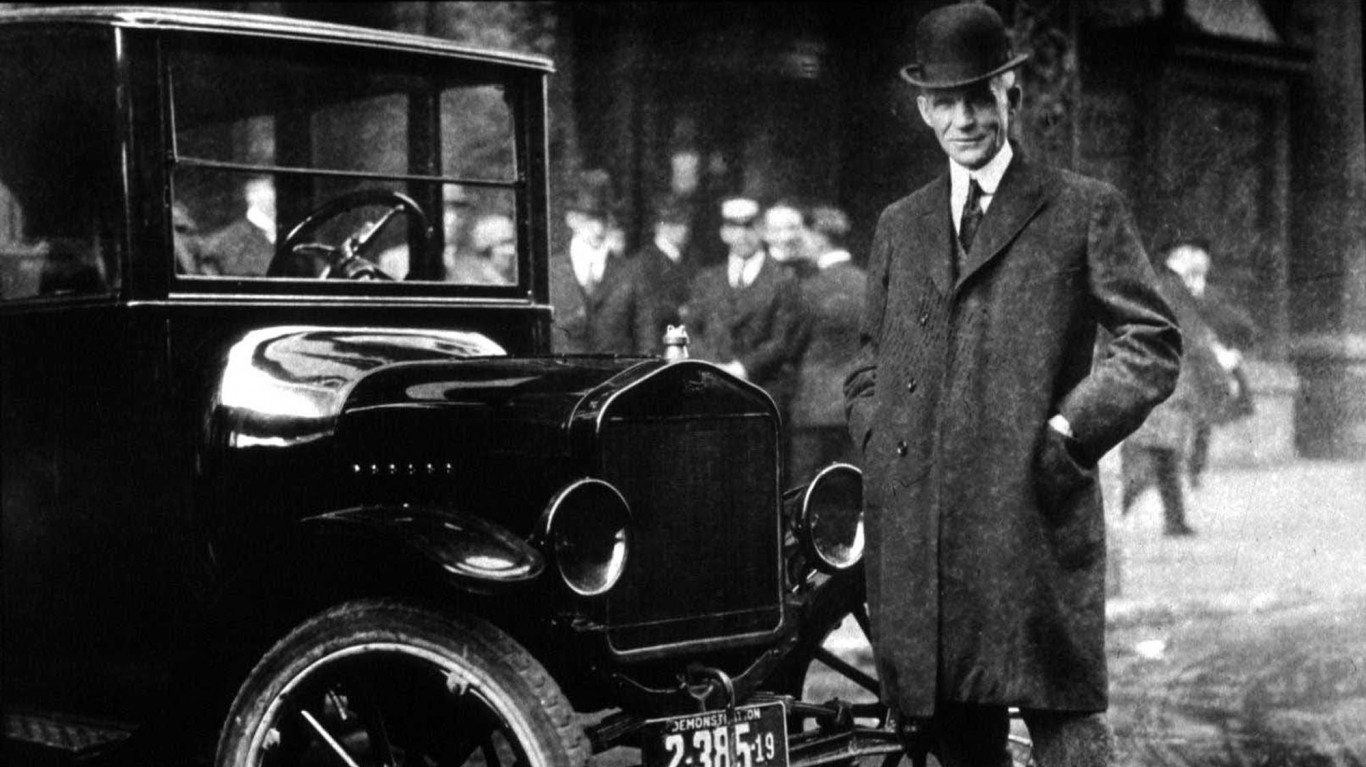
16. Henry Ford (1863-1947)
> 2018 estimated net worth: $68.3 billion
> Source of wealth: Automobiles
> Birthplace: Dearborn, Michigan
Henry Ford became one of America’s most famous entrepreneurs due to the dominance of the Ford Motor Company. Ford was able to make cars efficiently and inexpensively after inventing the moving assembly line. By 1918, nearly half of all cars on American roads were Fords.
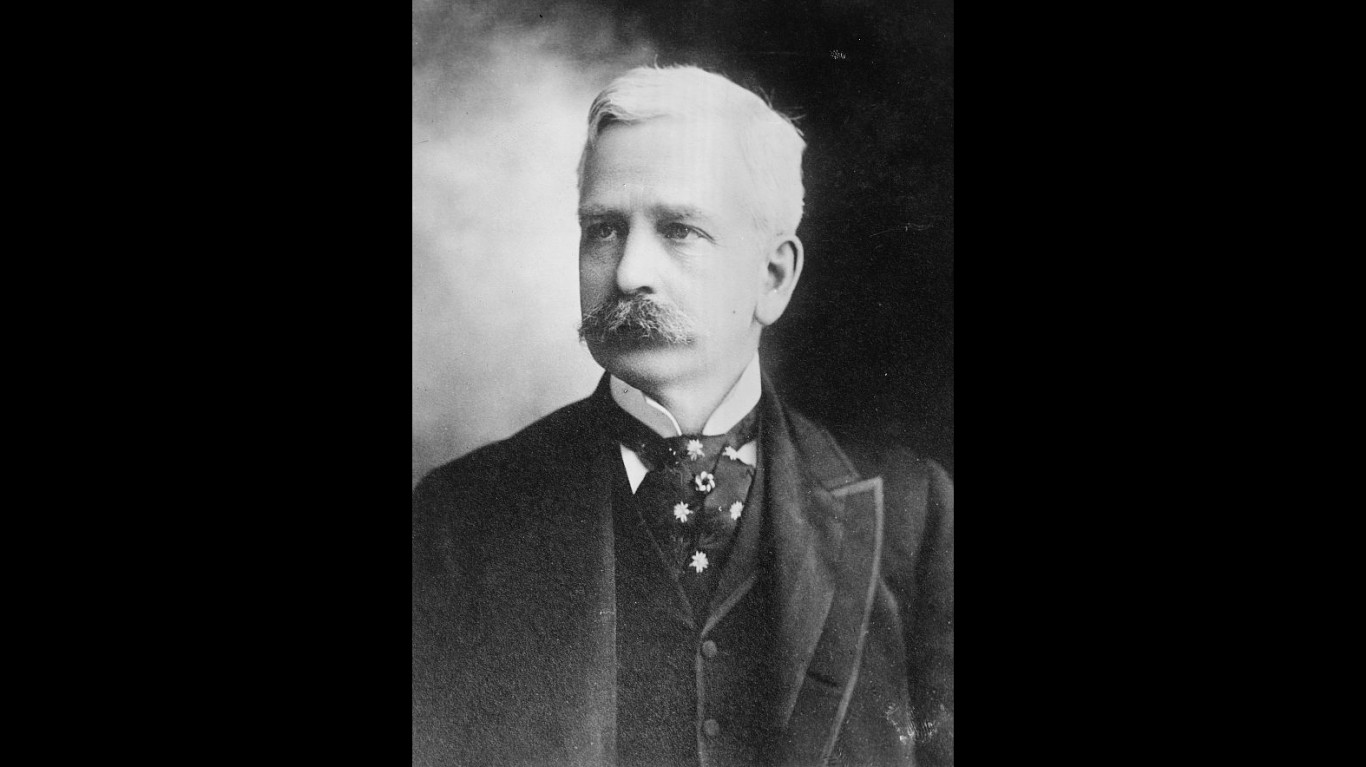
15. Marshall Field (1834-1906)
> 2018 estimated net worth: $76.3 billion
> Source of wealth: Department stores
> Birthplace: Conway, Massachusetts
A hard-working salesman, Marshall Field earned a fortune from his eponymous chain of department stores. He started a job at a Chicago mercantile house as a teen and worked his way up the store ranks to become a partner of the firm. He eventually bought out his partners and renamed his enterprise’s stores Marshall Field and Company.
[in-text-ad]
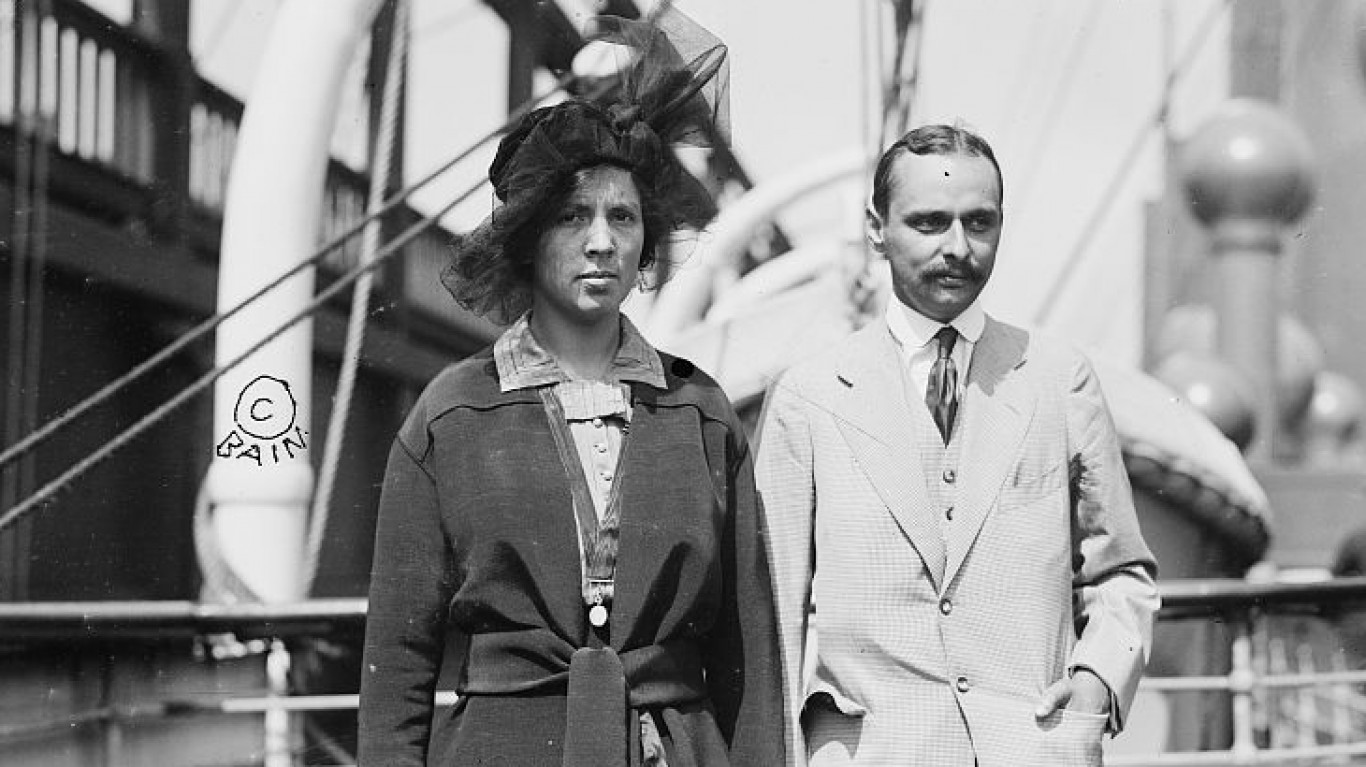
14. Jay Gould (1836-1892)
> 2018 estimated net worth: $79.6 billion
> Source of wealth: Railroads
> Birthplace: Roxbury, New York
Many 19th-century industrialists were notorious for their unscrupulous business practices and derisively called robber barons. Jay Gould may have been one of the most despised of this set because of his business practices. He reportedly issued fraudulent stock to buyers and bribed legislators to ensure that the sales went through. He rolled much of his profit into purchasing part of the Union Pacific Railroad.
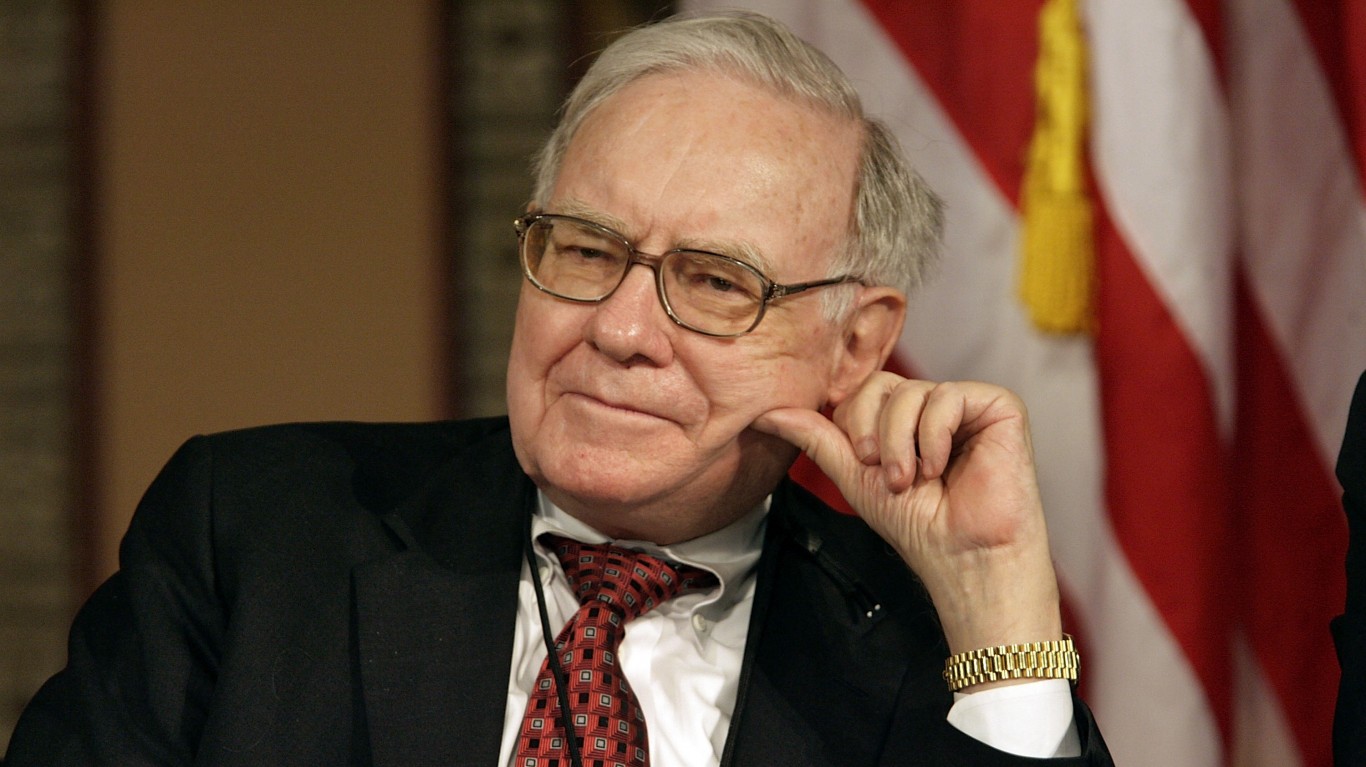
13. Warren Buffett (b.1930)
> 2018 estimated net worth: $85.1 billion
> Source of wealth: Berkshire Hathaway
> Birthplace: Omaha, Nebraska
Known as the “Oracle of Omaha,” Warren Buffett is a modern-day legend of investing and business diversification. He created his company, Buffett Partnership, in 1956 and quickly became a millionaire. He then purchased a textile company called Berkshire Hathaway but ended its textile division and purchased varied assets. Shares of Berkshire Hathaway are now among the most coveted stocks on the market. Buffett is also known for generous donations to charity; he has given away more than $32 billion.

12. Friedrich Weyerhaeuser (1834-1914)
> 2018 estimated net worth: $92.7 billion
> Source of wealth: Lumber
> Birthplace: Saulheim, Germany
Friedrich Weyerhaeuser left Germany at age 18 and began working at a sawmill in Illinois. After the economic downturn of 1857, Weyerhaeuser bought the mill and expanded his empire. He purchased logging operations around the Mississippi River. In 1900 he set a record for engaging in the largest private land transaction, when he bought 900,000 acres in Washington.
[in-text-ad-2]
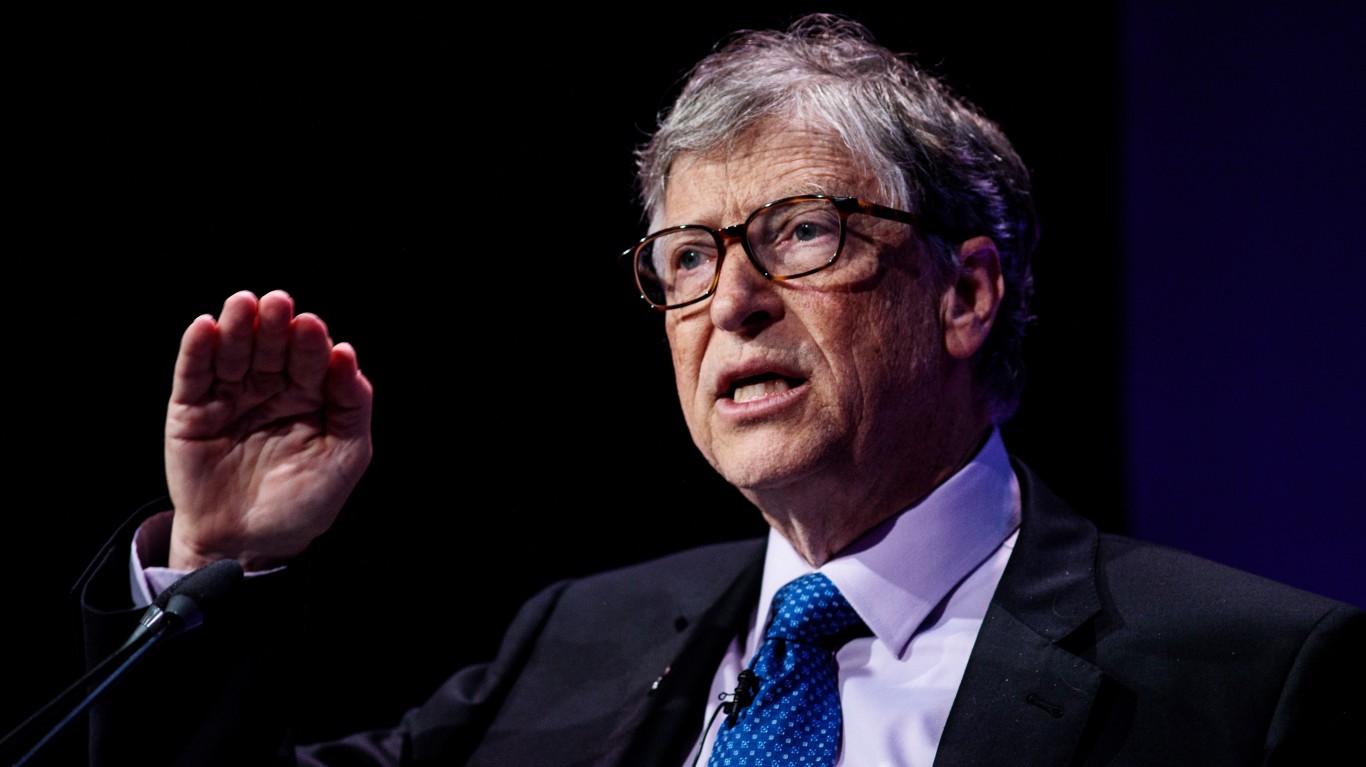
11. Bill Gates (b.1955)
> 2018 estimated net worth: $99.3 billion
> Source of wealth: Microsoft
> Birthplace: Seattle, Washington
After founding Microsoft, Bill Gates ranked as the wealthiest person in America for more than 20 years. He famously dropped out of Harvard to create Microsoft with partner, Paul Allen. The company transitioned from making computing machines to also offering software. Today Investopedia ranks it as the world’s largest software company by revenue.
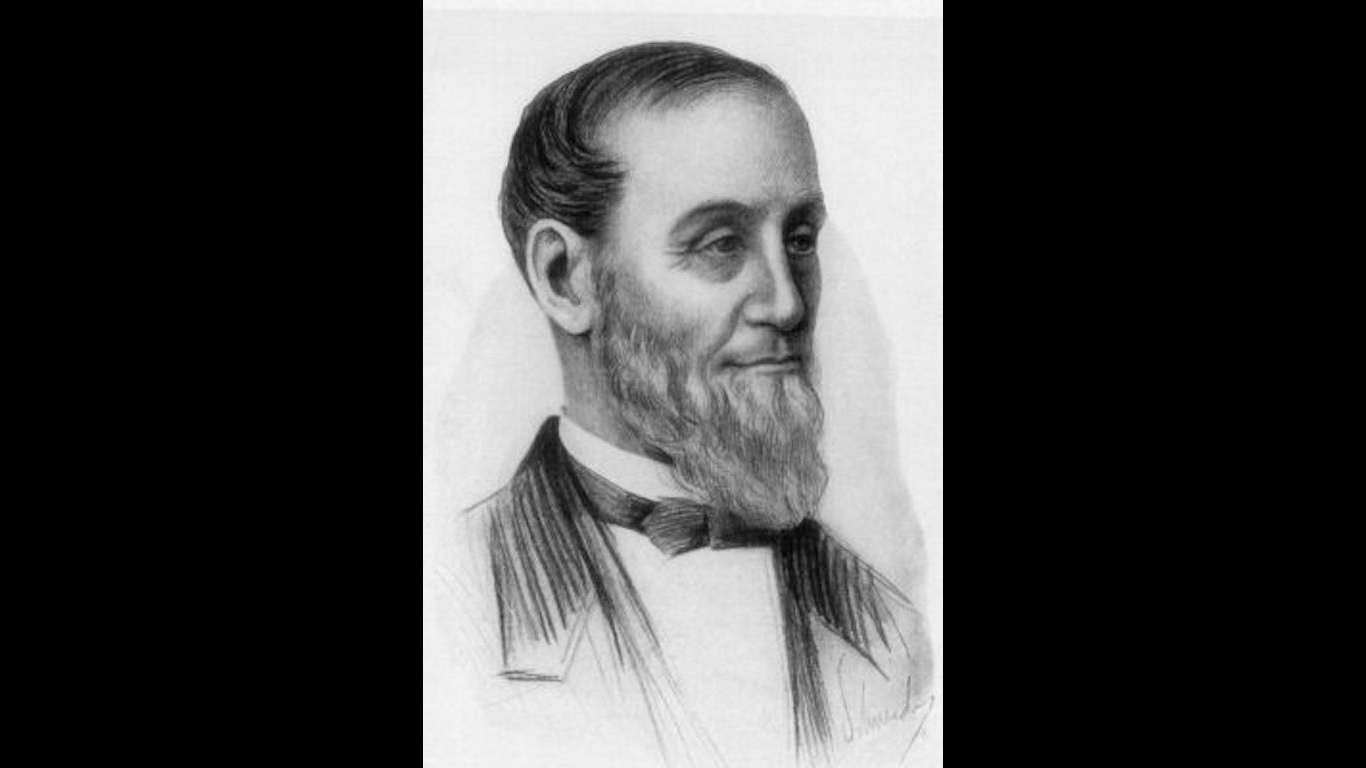
10. Alexander Turney Stewart (1803-1876)
> 2018 estimated net worth: $101.7 billion
> Source of wealth: Department stores
> Birthplace: Lisburn, Ireland
Alexander Turney Stewart slowly transformed his $3,000 inheritance into one of the largest retail empires in U.S. history. Born in Ireland, Stewart traveled to America to sell dry goods. He became one of the first retailers to offer standard prices instead of haggling with customers. Stewart’s company became so large, it won a contract to supply uniforms for Union soldiers during the Civil War.
[in-text-ad]
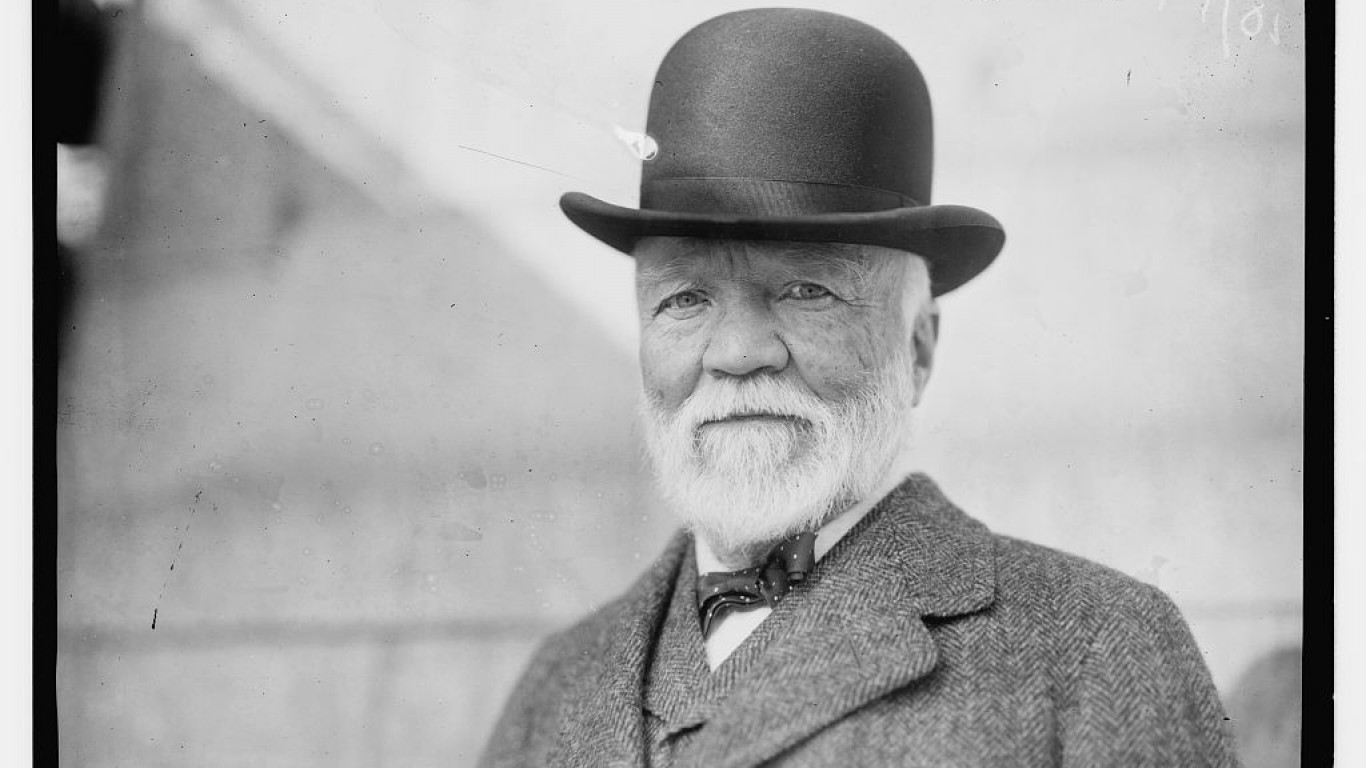
9. Andrew Carnegie (1835-1919)
> 2018 estimated net worth: $102.7 billion
> Source of wealth: Carnegie Steel Company
> Birthplace: Dunfermline, Scotland
At a time when considerable portions of America’s new transportation infrastructure were being built, Andrew Carnegie’s company supplied the needed steel. Carnegie Steel Corporation used technologically advanced methods to make prodigious amounts of steel and it owned the requisite raw materials to make production cheaper. In 1901 Carnegie sold his company for $200 million and focused on philanthropy. He once wrote the “man who dies rich dies disgraced.”

8. Stephen Van Rensselaer (1764-1839)
> 2018 estimated net worth: $102.7 billion
> Source of wealth: Inheritance, real estate
> Birthplace: New York City, New York
Stephen Van Rensselaer was born into considerable wealth. His father died when he was just 5 and left him a large amount of land and holdings. Stephen Van Rensselaer decided to rent out much of this property and at one point reportedly had as many as 100,000 tenants.
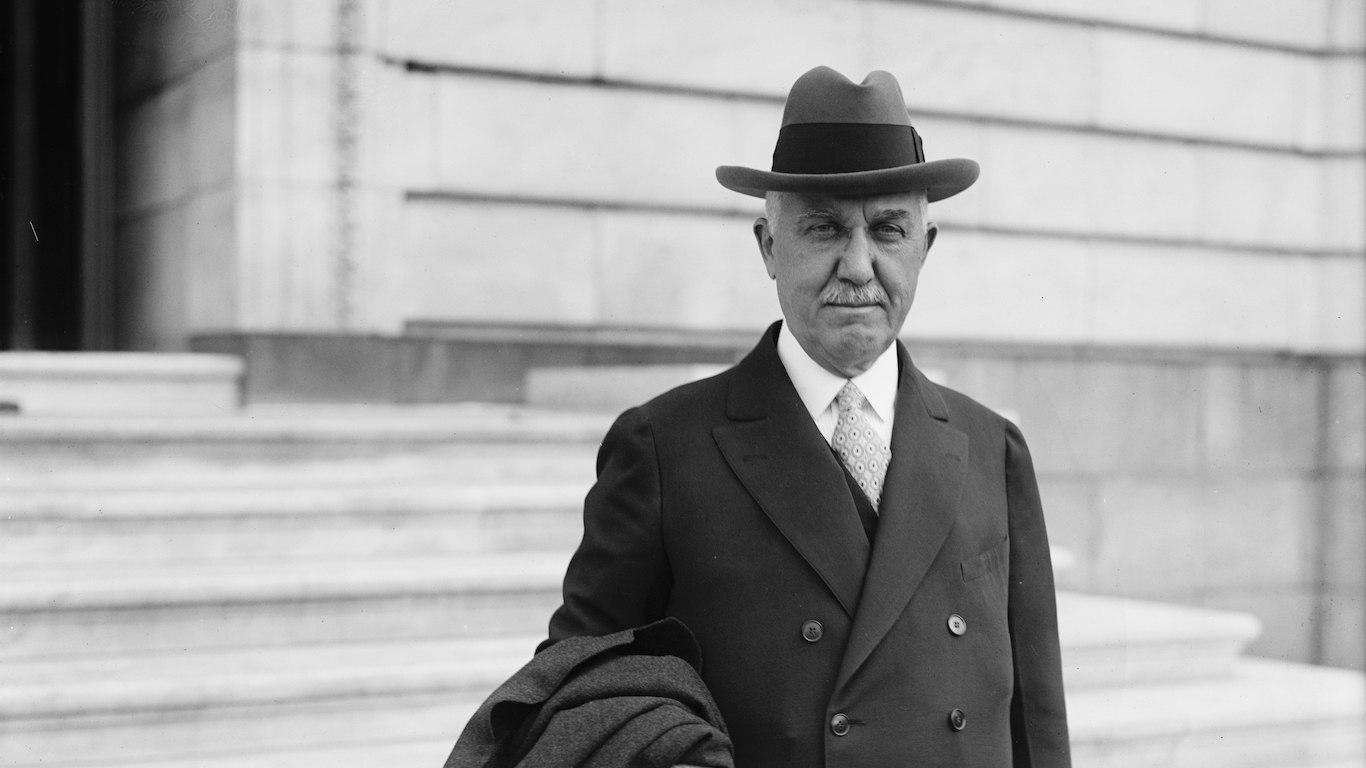
7. Richard Mellon (1858-1933)
> 2018 estimated net worth: $104.7 billion
> Source of wealth: Banking
> Birthplace: Pittsburgh, Pennsylvania
In 1882 Richard Mellon and his brother Andrew took over a bank run by their father. The pair also made money from the steel and coal industries, as well as the new burgeoning railroad business. Andrew ended up entering politics, becoming Treasury secretary, while Richard remained in the private sector.
[in-text-ad-2]
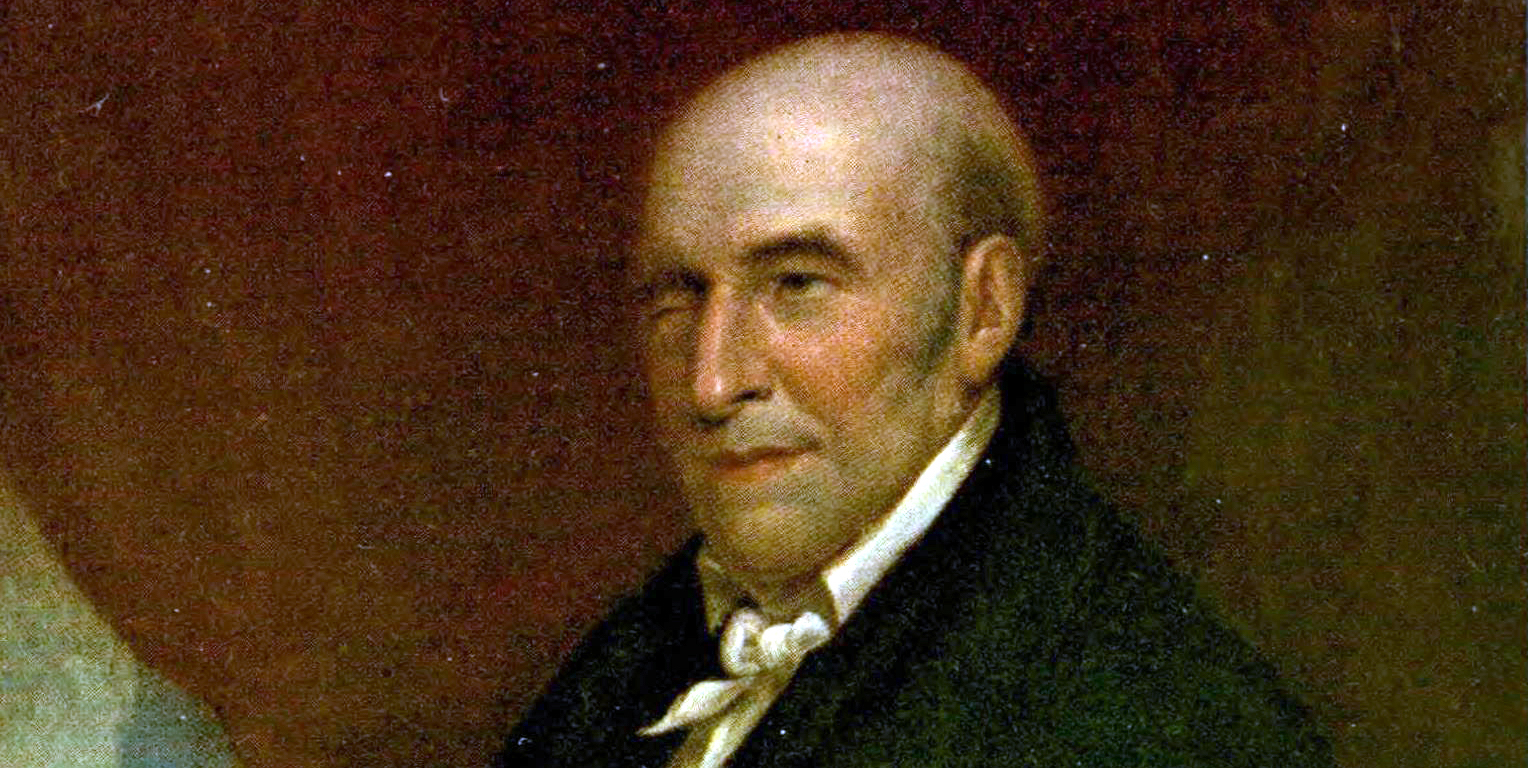
6. Stephen Girard (1750-1831)
> 2018 estimated net worth: $122.0 billion
> Source of wealth: Shipping
> Birthplace: Bordeaux, France
Though he was born before the founding of the United States, Stephen Girard became one of its most important early business tycoons. He amassed a fleet of trading ships and invested much of his money in the First Bank of the United States. He eventually bought the bank’s assets and used them to lend millions of dollars to the young country. during the War of 1812, keeping its government afloat.
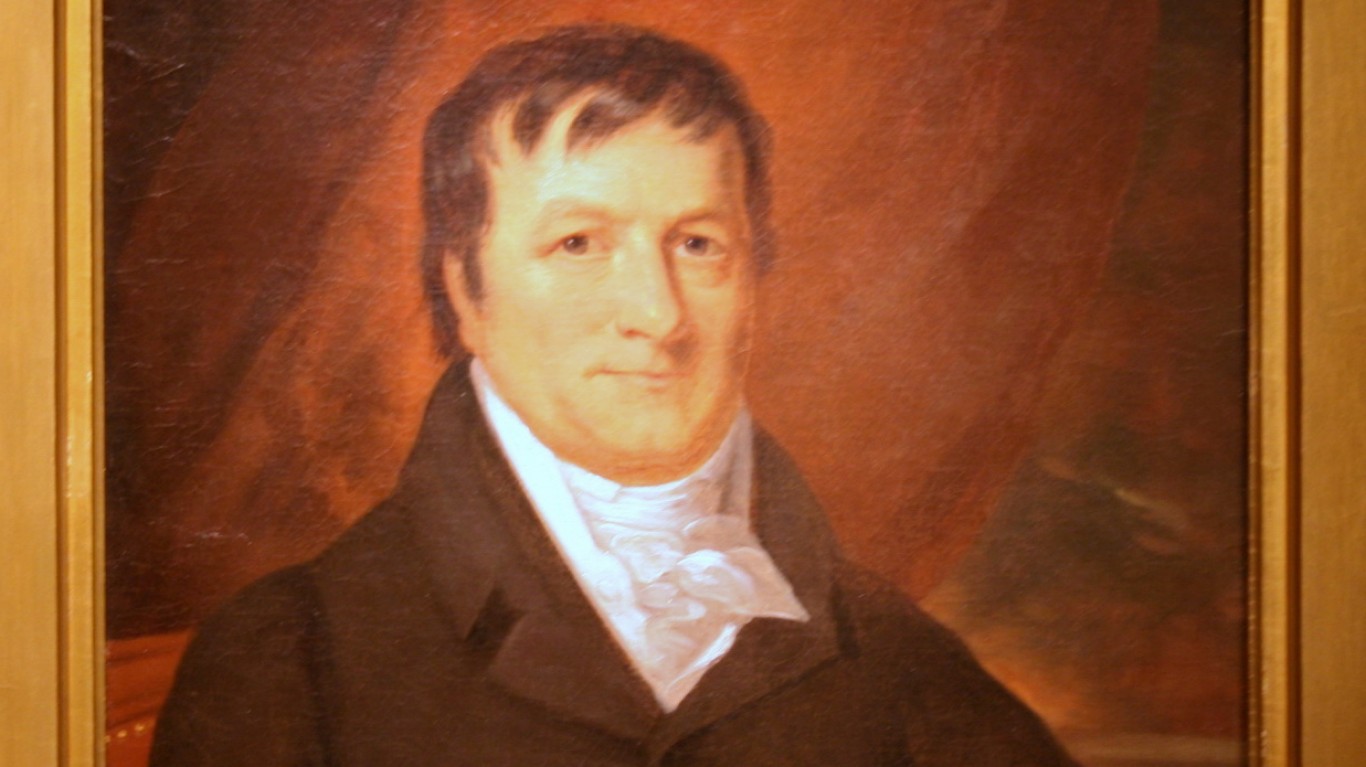
5. John Jacob Astor (1763-1848)
> 2018 estimated net worth: $140.3 billion
> Source of wealth: Fur trading, real estate
> Birthplace: Waldorf, Germany
John Jacob Astor personifies the American success story. He moved to America from Germany with no money and started a fur trading business that flourished. After selling his trading enterprise, he invested in New York City real estate. At one point, his company owned hundreds of Manhattan properties.
[in-text-ad]
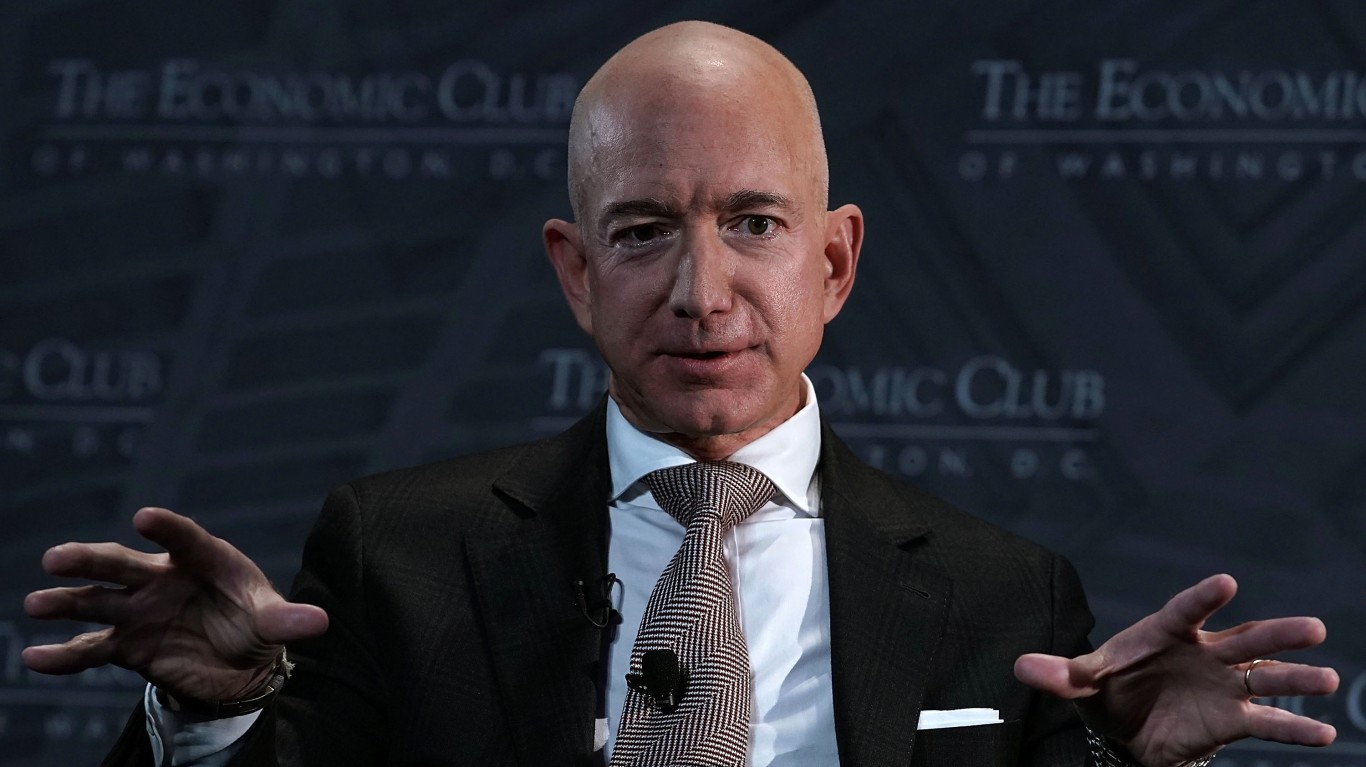
4. Jeff Bezos (b.1964)
> 2018 estimated net worth: $151.6 billion
> Source of wealth: Amazon
> Birthplace: Albuquerque, New Mexico
Amazon founder Jeff Bezos has seen his net worth skyrocket over the past year as his company continues to dominate the online shopping marketplace.

3. Sam Walton (1918-1992)
> 2018 estimated net worth: $171.6 billion
> Source of wealth: Walmart
> Birthplace: Kingfisher, Oklahoma
Walmart is America’s largest brick-and-mortar retailer, and its success has largely been guided by the influence of its founder, Sam Walton. He expanded his first retail efforts from overseeing a single Ben Franklin franchised store in Arkansas into managing 15 outlets. After he butted heads with the chain’s management, he decided to open his own stores. The first Wal-Mart opened in 1962, and by 1976 the company was worth more than $176 million.
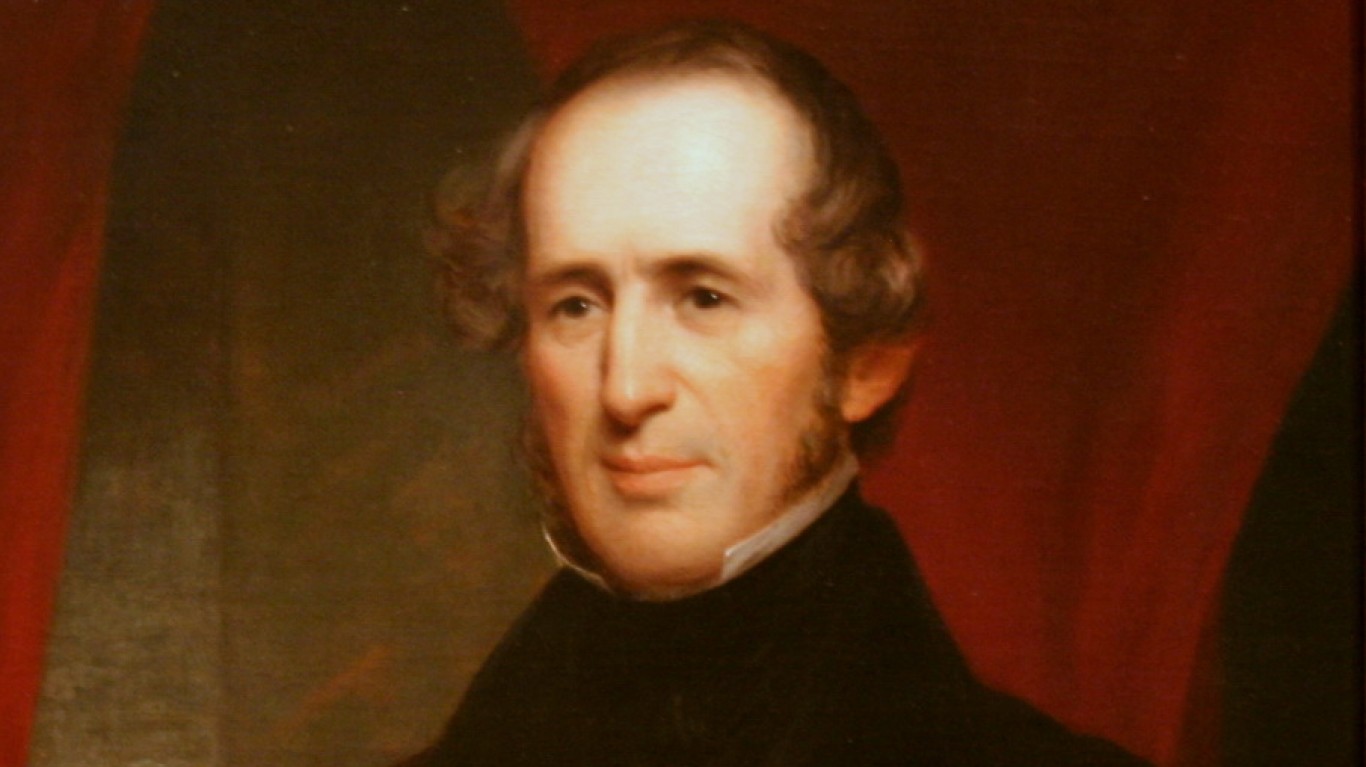
2. Cornelius Vanderbilt (1794-1877)
> 2018 estimated net worth: $208.4 billion
> Source of wealth: Shipping
> Birthplace: Staten Island, New York
Cornelius Vanderbilt first made his fortune ferrying goods on the rivers surrounding New York City. He later helped establish the railroad industry as a means of transporting goods to the West in the mid-1800s.
[in-text-ad-2]
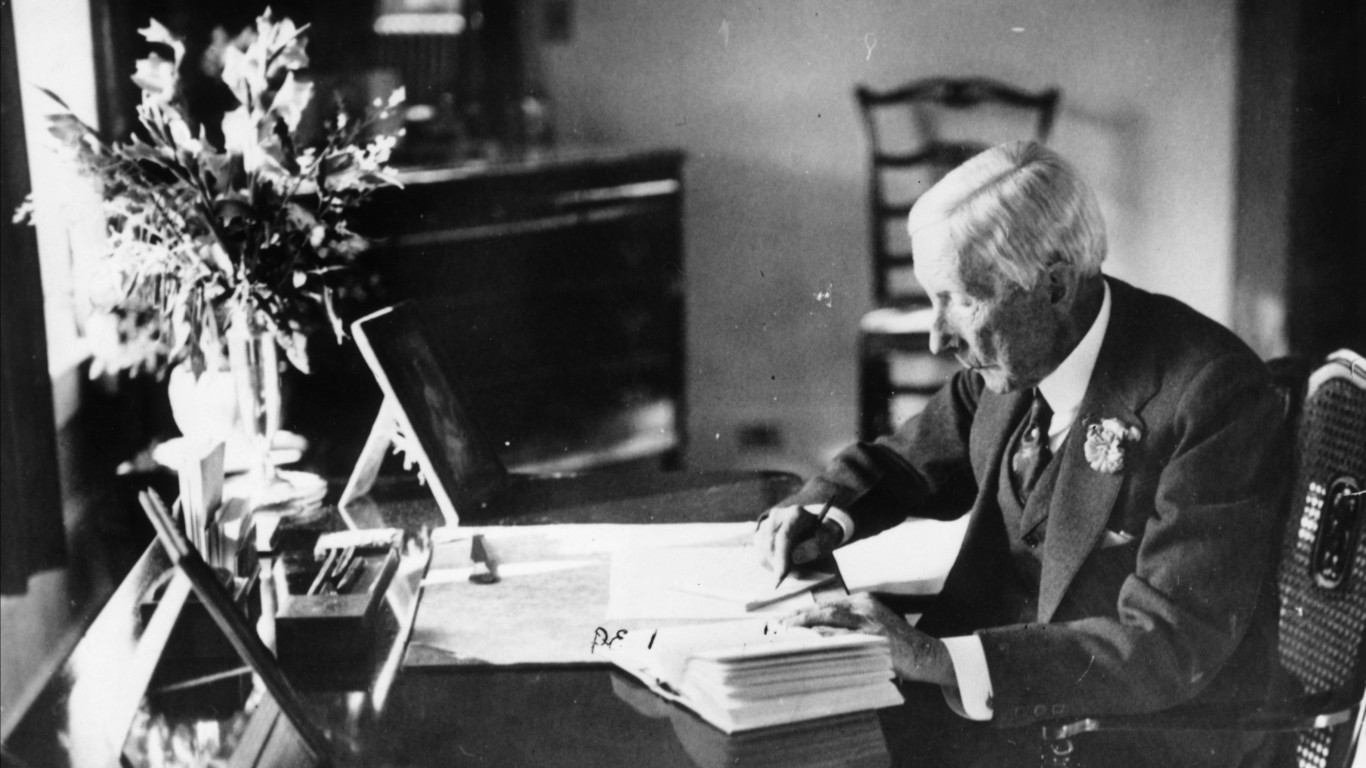
1. John D. Rockefeller (1839-1937)
> 2018 estimated net worth: $257.3 billion
> Source of wealth: Standard Oil
> Birthplace: Richford, New York
John D. Rockefeller is one of the most successful businessmen of all time. He established a standard for the quality of oil and strived to run his company, Standard Oil, at peak efficiency. It’s possible that Rockefeller was the first billionaire in the U.S., but he certainly was the wealthiest American ever. His fortune has been estimated to be about one/sixty-fifth of the U.S. gross domestic product.
100 Million Americans Are Missing This Crucial Retirement Tool
The thought of burdening your family with a financial disaster is most Americans’ nightmare. However, recent studies show that over 100 million Americans still don’t have proper life insurance in the event they pass away.
Life insurance can bring peace of mind – ensuring your loved ones are safeguarded against unforeseen expenses and debts. With premiums often lower than expected and a variety of plans tailored to different life stages and health conditions, securing a policy is more accessible than ever.
A quick, no-obligation quote can provide valuable insight into what’s available and what might best suit your family’s needs. Life insurance is a simple step you can take today to help secure peace of mind for your loved ones tomorrow.
Click here to learn how to get a quote in just a few minutes.
Thank you for reading! Have some feedback for us?
Contact the 24/7 Wall St. editorial team.
 24/7 Wall St.
24/7 Wall St. 24/7 Wall St.
24/7 Wall St. 24/7 Wall St.
24/7 Wall St.
